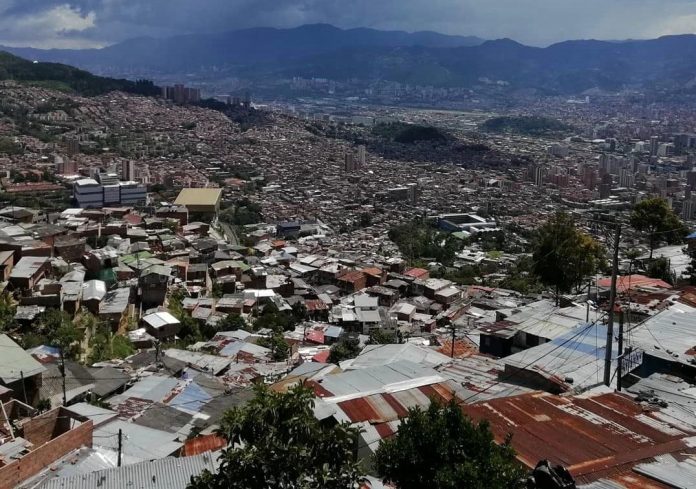Professor Harry Smith was invited to the Seventh World Urban Forum in Medellin, Colombia in 2014. There he established contacts with Universidad Nacional de Colombia that later gave rise to three important projects:
- Mitigation of landslide risks in informal settlements in Medellin
- Landslide risk management strategies through the development of community-based infrastructure in Latin American cities
- Smart city approaches to the challenges of urban resilience from pilot experiences in Medellin, Colombia.
Through these research projects, the team developed a ‘top-down and bottom-up’ work methodology focused on the analysis of 4 topics:
- Smart city concept
- Data, use, and access to information and technologies
- Citizen participation methodologies
- Impacts of identified citizen initiatives
The impact of this research was to understand the application of information and communication technologies (ICT) and smart city initiatives in vulnerable communities in Medellín-Colombia.
It was important to learn how ICT supports the production and management of data at the community level, to make it more accessible for the community.
For example, WhatsApp is now used as a community based early warning mechanism in case of landslides. The knowledge gained by the community is used to build resilience, resulting in improvements to the quality of life.
The collaboration and the creation of new networks were essential to the successful development of these projects. The cooperation has crossed borders and has spread around Latin America, including Brazil and Honduras. Collaborators from the UK as the Edinburgh University, the University of Manchester, and Cardiff University have been part of this partnership. Prof Smith said, ‘somewhat really makes partnership collaboration works is finding things that you can do together’. If an idea is strong enough, it can allow others to learn, appropriate it, incorporate it into their contexts, propagate it, and use it in similar situations.
- Professor Harry Smith
- Professor Gabriela M. Medero
- Project Website
- HWU Frontier Research-Smart Constructions

